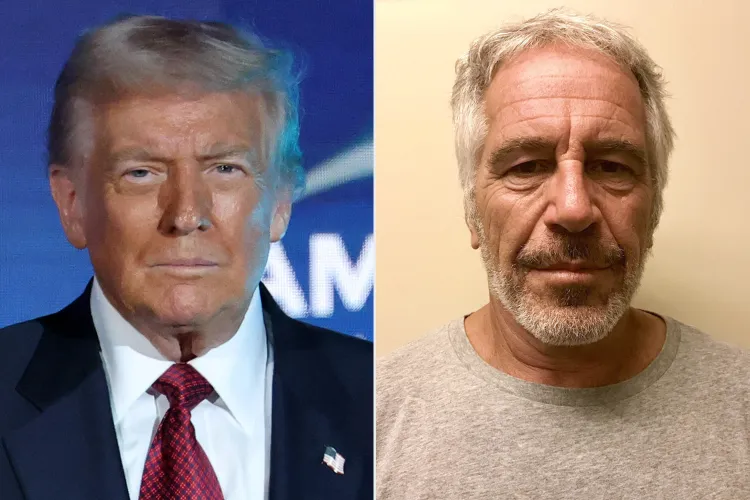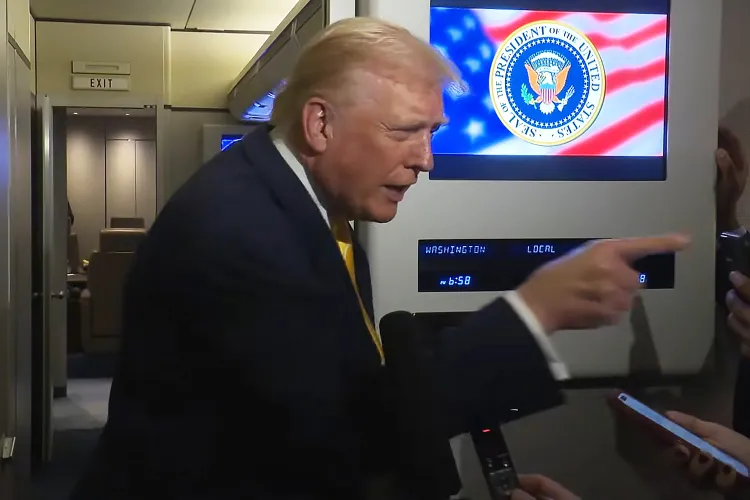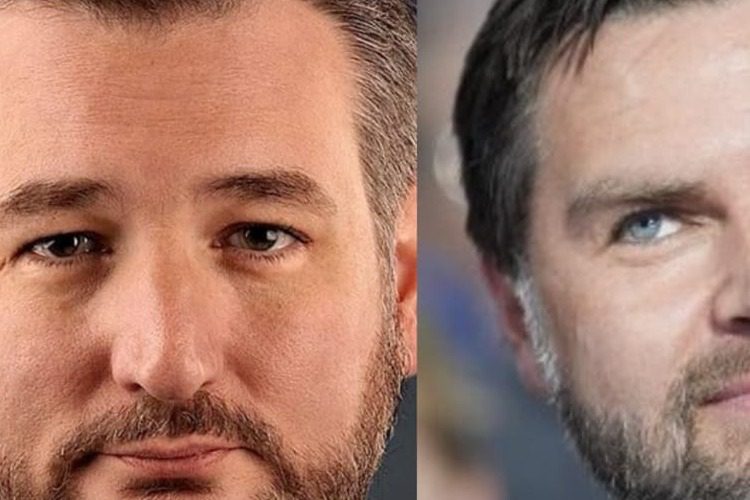After Months of Calling the Epstein File Push a “Hoax,” Donald Trump Now Urges House Republicans to Vote for Full Release of the Records
Former President Donald Trump has now publicly called on House Republicans to vote in favor of releasing the Epstein files — a dramatic shift from the stance he held just months earlier, when he dismissed the effort as a “hoax” and accused his political opponents of using the scandal to damage him ahead of the 2024 election. The sudden reversal has ignited new debate in Washington, where Republicans themselves have been divided over how far they should go in disclosing material connected to Jeffrey Epstein, the late financier and convicted sex offender whose social and political connections continue to fuel public suspicion decades after his first criminal case.
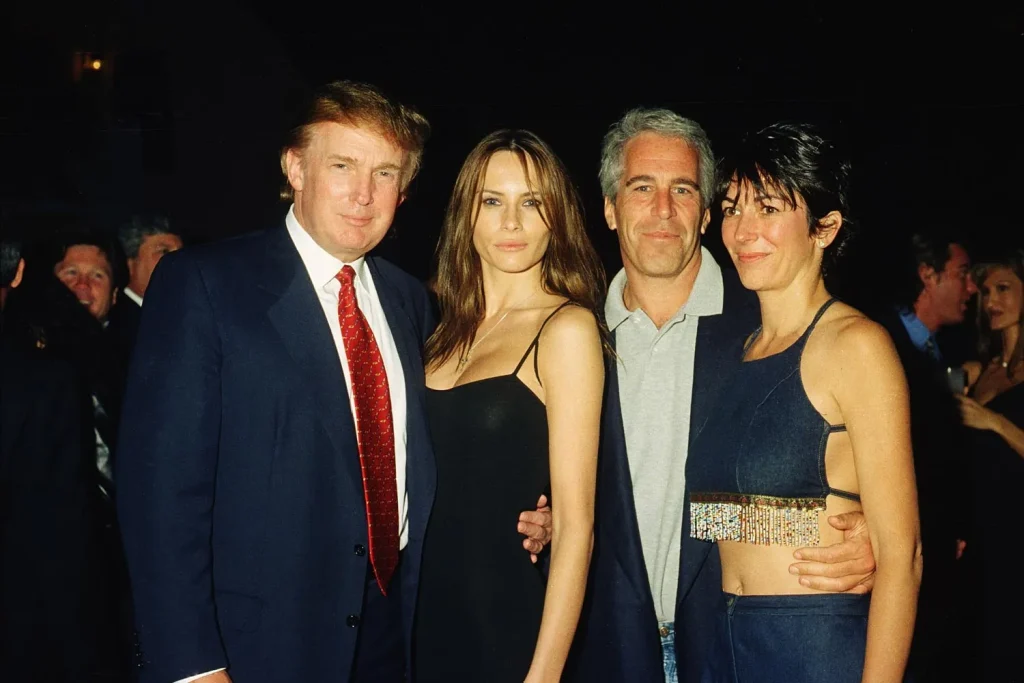
Trump’s new position was posted on Truth Social, where he wrote that House Republicans should “absolutely vote to release all Epstein documents.” He framed the issue as one of transparency, saying that the American public deserves to know “everyone involved.” The statement contained no acknowledgement of his earlier rejection of the effort, and made no reference to why he changed his position. He did not name any specific individuals and did not claim that he had seen the full file contents. Instead, he framed the release broadly as a matter of principle, writing that “sunlight is the best disinfectant.”
That language marks a noticeable shift from previous comments. Earlier this year, Trump described the push to release Epstein-related congressional records as “a political hoax,” echoing language he has used to describe other investigations into his past. At that time, Trump suggested that Democrats were pushing the issue primarily to create guilt-by-association headlines involving high-profile figures — some of whom included celebrities, former presidents, billionaires and social world acquaintances whose names appeared in Epstein-connected documents, court filings or flight logs over a span of two decades.
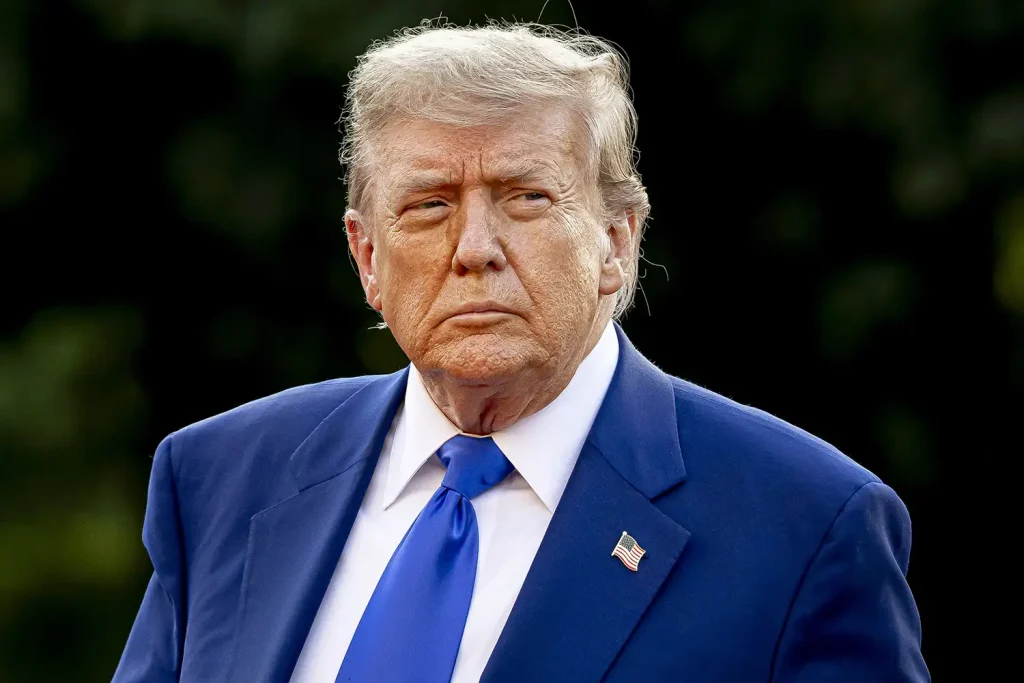
Trump himself has repeatedly denied any involvement in Epstein’s criminal activity. He has acknowledged that he knew Epstein socially in the 1990s and early 2000s, something widely documented, but has insisted that he severed ties long before Epstein’s 2008 conviction. In 2019, when Epstein was arrested again on federal sex trafficking charges, Trump told reporters he was “not a fan” and that the two “had a falling out a long time ago.” Epstein died in jail weeks later in a highly publicized incident officially ruled a suicide.
The renewed political fight in Congress is not over Epstein’s crimes themselves — which are already documented — but rather over who interacted with him, who visited his properties, who flew on his planes and who maintained business or personal relationships with him before and after his first criminal case. A subset of Republican members in the House have joined Democrats in requesting full disclosure of any records still held under congressional oversight, including sealed materials from civil litigation. Others inside the GOP have expressed concern that such a release could trigger political chaos by exposing donors, former officials, or public figures with loose social ties that carry no criminal implication.
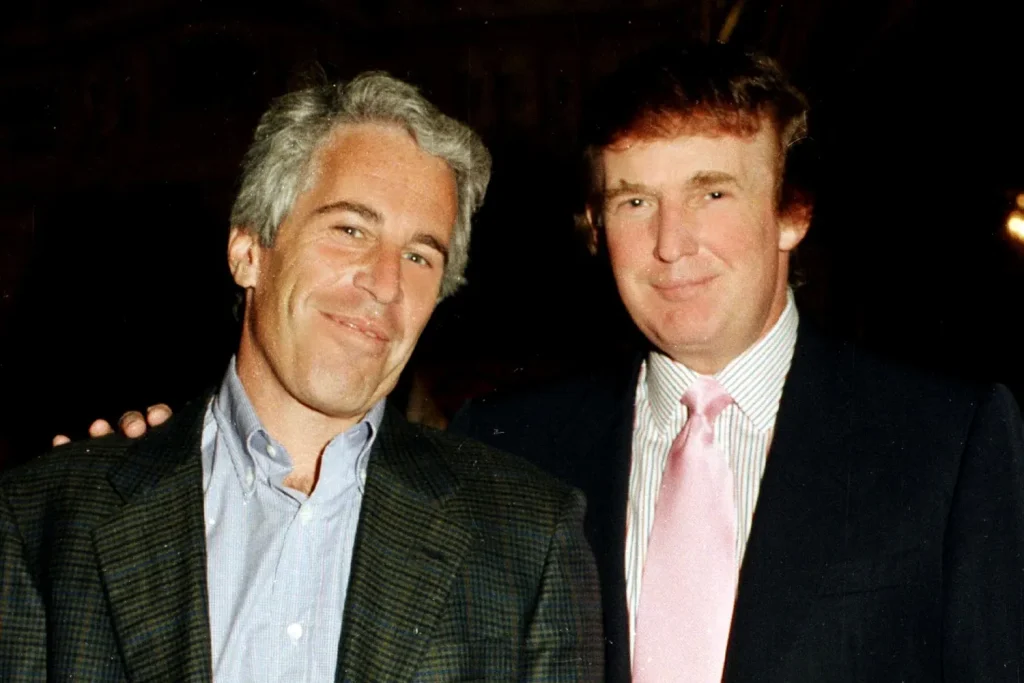
Trump’s abrupt change of position has therefore drawn attention not only because of the Epstein case itself, but because it signals a clear shift in political strategy. His call for total disclosure comes at a moment when he is seeking to rally congressional Republicans behind him amid other legal pressures, including his ongoing appeals of civil judgments in New York and the looming criminal proceedings tied to election-related indictments. By urging a public release, Trump places himself on the side of transparency — a position that allows him to characterize any hesitation from lawmakers as suspicious.
His message also functionally pressures House Speaker Mike Johnson, who has been navigating his own internal party divisions. Johnson has not committed to a full release, but has told reporters he supports transparency “where appropriate.” Pressed on whether he would bring an Epstein records vote to the House floor, Johnson has avoided a firm commitment. A sudden public directive from the former president may force that question forward.
The Epstein files in question are not a single document, but a wide-ranging set of materials that include long-sealed civil depositions, subpoenaed flight records, correspondence between government investigators and institutions that employed Epstein, and miscellaneous documents collected across various legal jurisdictions. Some of these have already been released voluntarily or through court action. A recent batch of court-ordered documents from the Epstein-related Ghislaine Maxwell case revealed numerous names of people who reportedly crossed paths with Epstein in professional or social settings. Many were not accused of wrongdoing. Their presence in the documents, however, reignited the public’s appetite for answers.
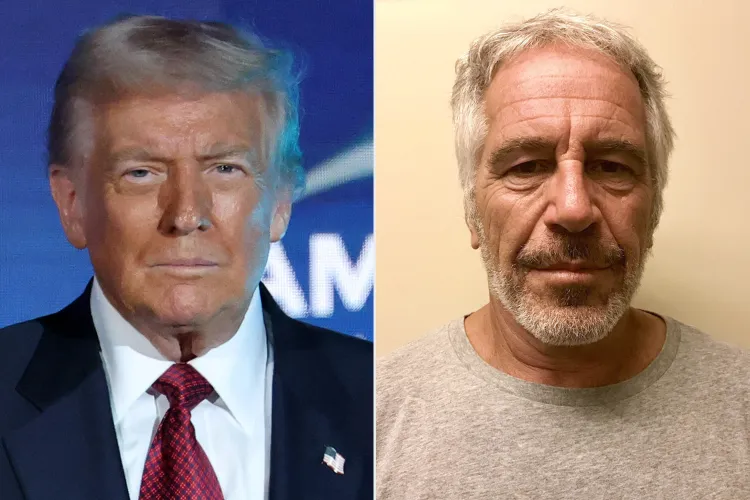
The complexity of the file is part of why lawmakers have disagreed on how to handle it. Some Republicans, especially those aligned with Trump’s base, argue that full disclosure will expose a long-hidden network of powerful individuals connected to Epstein. Others warn that the files include decades of tangential names — some of them simply people who attended fundraisers, charity functions or business meetings in which Epstein was present — and that indiscriminate release risks creating false implications in the court of public opinion.
What remains consistent is that Epstein’s life and death continue to provoke speculation far beyond what any single court case ever addressed. His 2008 plea deal in Florida was widely criticized as overly lenient. His 2019 arrest was seen by many as a long-delayed correction. His death in federal custody, followed by multiple failures in jail oversight, triggered congressional inquiries that remain partially unresolved. Years later, political figures use the name “Epstein” as shorthand — sometimes for legitimate outrage, sometimes as a rhetorical weapon.
Trump’s critics have already framed his reversal as opportunistic, pointing to the timing — coming as the spotlight on Epstein-related releases has intensified. His supporters, meanwhile, say it reflects a broader transparency stance that parallels his repeated demands for release of other classified or sealed government materials. Both interpretations underscore the same reality: when Trump weighs in, he shapes not only the political conversation but also the Republican legislative calendar.
Outside Washington, the public’s interest remains driven by the unanswered questions: Who enabled Epstein? Who protected him? Who knew what and when? And why were decades of allegations minimized? Those questions are not partisan. Survivors of Epstein’s abuse have repeatedly said they want every name exposed, regardless of political affiliation or economic stature. Multiple victims have said publicly that their concern is not about who is embarrassed — but who may still have acted without accountability.
For those survivors, the possibility of formal congressional release is not just about optics. It is about ensuring that the case does not fade into rumor and conspiracy, but remains anchored to verifiable documentation. Many of the women who testified in the Maxwell prosecution said that the most painful part of their experience was not only being abused, but later feeling dismissed or ignored. They have consistently pushed for transparency, and many have said they support the total release of Epstein-related records.
What happens next depends largely on procedural decisions by House leadership. A vote could be scheduled — or it could stall. Trump’s public request may accelerate momentum, or it may fracture Republicans further depending on how individual lawmakers interpret the risks.
For now, what stands is this: Donald Trump, who once called the effort a hoax, now says Republicans should vote yes. He has put his name on the side of full release. Whether that remains a symbolic political placement or triggers a real vote depends on Congress — and on how intensely Trump continues to press the issue.
But his shift marks yet another moment in which the Epstein case, more than four years after the financier’s death, continues to intersect with American politics at the highest levels. What began as a criminal scandal has lingered as a cultural fault line — one where conspiracy theories, legitimate demands for transparency and raw political calculation remain tightly intertwined.
